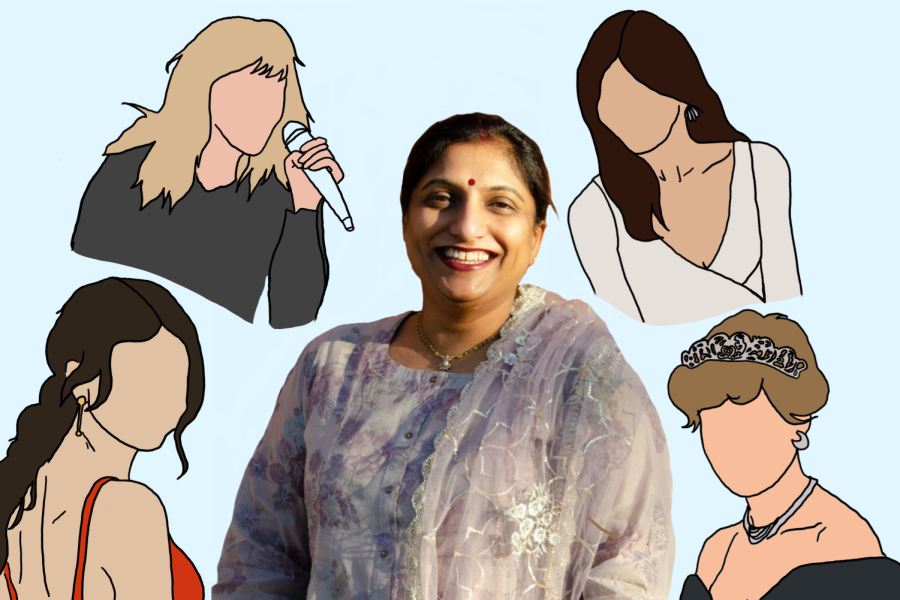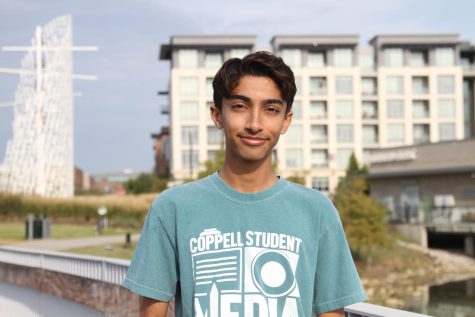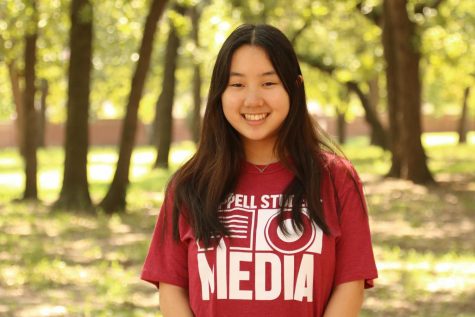The Woman Who Made Me: Memories of my mother paralleled in role models
The Sidekick staff writer Shrayes Gunna regards his mother as the person who shaped him. She influenced Gunna’s choice in female role models, who hold the qualities that he admires in his mother.
March 16, 2022
My mother is Hindu but every night before dinner she prays to Jesus Christ. I’ve never fully comprehended this paradoxical aspect of her identity, but I’ve accepted it as one of her fatal flaws. She can never make up her mind: her indecision fuels my constant curiosity.
As I ask her about her past, the stories gushing from her lips and emotions painted in her sad eyes as she reflected redefine my conception of her and let me into a hidden collection of her memories.
My mother was born Vishwa Shanthi Gunta. Now, all her legal documents read Shanthi Gunna, the transfiguration of her name reflecting the multiplicity of her experiences.
She was born in 1975.
At age 5, she was sent to a Catholic boarding school nestled in the sprawling city of Vizag beside her small hometown of Palasa.
At age 22, she married Shankar Gunna, and she relinquished her dream of becoming a doctor, pursuing engineering instead.
At age 24, she made the difficult decision to move to the United States, forcing herself to orient to a foreign landscape.
And at 29, she had me.
She was the antithesis of traditional, never taking leave from work to tend to my needs, instead chasing after her goals alongside cultivating a family. As soon as I could really process words, my mother would greet me with an outpouring of tales about her work as a Vice President at J.P. Morgan Chase managing 27 men.
My mother has never been submissive to society’s norms. As an Asian woman working in a field populated primarily by men, she had to be bold, steadfast and ten-times as hardworking as her male counterparts.
And so she is.
She shaped who I am, instilling a fond respect and appreciation of the class, sophistication, power and majesty of femininity. My idols have always been women, all elegant, intelligent and trailblazers in their respected fields.
My idols now are diverse and poignant, each holding the sort of conviction and strength I appreciate in her.
When Selena Gomez crafted “Living Undocumented” to shed light on the stories of illegal immigrants, my mother encouraged me to embrace my culture and analyze its intersections with politics and social justice.
When Taylor Swift sang “pack your dolls and a sweater, we’ll move to India forever” in her song “Seven,” my trips to India with my hand clutched in my mother’s come to mind.
When Gemma Chan represented strength and independence in Crazy Rich Asians breaking societal expectations, my mother was making parallel strides for representation in the STEM field, embodying the same values and drive.
When Princess Diana walked barefoot across minefields in Africa driven by her heart, my mother joined institutions from health clinics to the local homeowners’ association to be a voice for her expansive network of friends and acquaintances.
My mom never wears her heart on her sleeve, conditioned to keep in her feelings. But if you were to sneak up on her as she watched movies through the night, you’d see her crying at the cheesy love story fixed across the TV. Most people wouldn’t really understand my mom nor recognize her valiant efforts and growth, but I do.
She is the woman who made me, by influencing my idols, encouraging my passions and adding fuel to my fire as it flickers out. So every night, I follow her prayers with an “amen” accepting and loving her for all she is.
Follow Shrayes (@ShrayesGunna) and @CHSCampus News on Twitter.












Louise Brandy • Mar 30, 2022 at 11:43 pm
This is a fabulous article and your mother is an inspiration! I’ve worked with her and she is a great leader and friend
Hem Kanithi • Mar 29, 2022 at 5:42 pm
WOW, what a nice write up, expressed from the young heart. Treat that as a mothers day gift Paamma.
Rama Badam • Mar 29, 2022 at 1:29 am
Beautifully expressed .. from the heart… and every word is so true about your mom… she is an inspiration for me too… my name is Rama I am her childhood friend…. God bless you kanna
Praveena • Mar 28, 2022 at 9:49 pm
Good job nana
From
Sriya’s mom